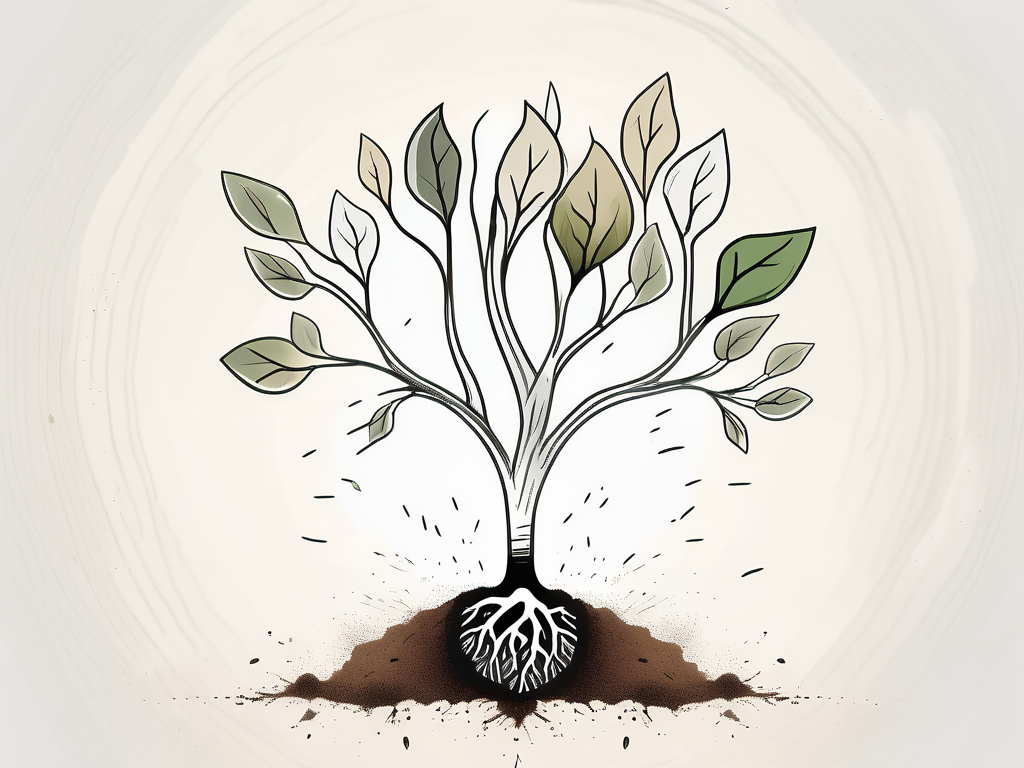Have you ever wondered why some people seem to effortlessly adopt new habits, while others struggle to make lasting changes? The secret lies in the power of inspiration and will power. In this article, we will explore the role of inspiration in personal development, the science behind will power, and the art of creating new habits. We will also discuss common obstacles in habit formation and techniques for maintaining new habits for long-term success. So let's dive in and uncover the secrets to creating positive change in our lives.
Understanding the Power of Inspiration
Inspiration is like a spark that ignites our desire for change. It fuels our motivation and propels us towards our goals. Whether it comes from a mentor, a personal experience, or even a book, inspiration plays a vital role in our personal development.

When we experience moments of inspiration, our minds open up to new possibilities and perspectives. It is during these times that we are most receptive to change and growth. Inspiration has the ability to awaken dormant ambitions within us, nudging us towards a path of self-improvement and fulfillment.
The Role of Inspiration in Personal Development
Inspiration acts as a catalyst for personal growth. It helps us break free from our comfort zones and pushes us to reach for greater heights. When we are inspired, we believe in our ability to create change and take the necessary steps to make it happen. It fuels our passion and enthusiasm, making the journey towards new habits more enjoyable.
Moreover, inspiration has a ripple effect on our lives. When we are inspired, we are more likely to inspire those around us, creating a positive cycle of motivation and empowerment. By sharing our sources of inspiration with others, we contribute to a community of upliftment and encouragement.
Harnessing Inspiration to Drive Change
To harness the power of inspiration, we must seek out sources that resonate with us on a deep level. This could be in the form of reading inspiring stories, listening to motivational speakers, or surrounding ourselves with positive and supportive individuals. By immersing ourselves in inspiration, we fuel our determination and find the strength to overcome challenges in habit formation.
Furthermore, it is essential to reflect on what specifically inspires us and why. Understanding the root of our inspiration can provide valuable insights into our values, aspirations, and areas for personal growth. By delving deeper into the sources of our inspiration, we can cultivate a more profound connection to our goals and a stronger drive to pursue them relentlessly.
Will Power: The Engine of Habit Formation
Will power is the driving force behind habit formation. It is the ability to resist short-term temptations in favor of long-term goals. Understanding the science behind will power can help us strengthen and optimize this essential skill.
Will power is not just a concept but a tangible force that influences our daily decisions and behaviors. It serves as the mental muscle that allows us to stay focused on our objectives, even when faced with distractions or challenges. By harnessing the power of willpower, individuals can cultivate discipline and perseverance, essential qualities for achieving personal growth and success.
The Science Behind Will Power
Studies have shown that will power is a limited resource that can be depleted throughout the day. This phenomenon, known as ego depletion, explains why it becomes harder to make good choices as the day progresses. However, like a muscle, our will power can also be strengthened through practice and conscious effort.
Furthermore, research suggests that factors such as stress, fatigue, and hunger can significantly impact our willpower reserves. By managing these external influences and prioritizing self-care practices, individuals can better preserve their mental energy and make more consistent decisions aligned with their long-term goals.
Strengthening Your Will Power
To strengthen your will power, it's essential to adopt strategies that minimize the need for excessive self-control. This includes setting realistic goals, breaking them down into smaller, manageable steps, and creating a supportive environment that reduces the reliance on willpower alone. Additionally, practicing mindfulness and self-care activities can replenish your willpower reserves, enabling you to make consistent progress in forming new habits.
Moreover, building a strong support system and surrounding yourself with like-minded individuals can enhance your willpower by providing encouragement, accountability, and motivation. By fostering a positive and empowering environment, you can boost your resilience in the face of challenges and setbacks, making it easier to stay committed to your habits and goals in the long run.
The Art of Creating New Habits
Habit formation is a psychological process that revolves around repetition and reinforcement. Understanding the psychology behind habit formation can help us create lasting changes in our lives.

The Psychology of Habit Formation
Habits are behaviors that become automatic through repetition. They are deeply ingrained patterns of action that no longer require conscious effort. By understanding the habit loop—cue, routine, reward—we can identify triggers for our old habits and replace them with more desirable ones. This process requires patience, consistency, and self-awareness.
Strategies for Successful Habit Creation
- Start small: Begin with a habit that is easy to incorporate into your daily routine.
- Be specific: Clearly define what habit you want to develop and how you will measure your progress.
- Set a schedule: Establish a consistent time and place for practicing your new habit.
- Reward yourself: Celebrate your successes along the way to reinforce positive behaviors.
- Track your progress: Keep a journal or use habit tracking apps to monitor your consistency and identify areas for improvement.
Overcoming Challenges in Habit Formation
Creating new habits is not always a smooth journey. There are common obstacles that can hinder our progress. Identifying these challenges and developing strategies to overcome them is key to success.

Common Obstacles in Creating New Habits
Procrastination, lack of motivation, and fear of failure are common obstacles that can impede habit formation. Additionally, external factors such as environmental triggers, peer pressure, and conflicting priorities can also pose challenges. Recognizing these hurdles allows us to devise effective solutions and maintain our momentum.
Tips for Overcoming Habit Formation Hurdles
- Break it down: If a habit feels overwhelming, divide it into smaller, manageable steps.
- Find support: Seek guidance from mentors or join communities of like-minded individuals who can provide encouragement and accountability.
- Visualize success: Create a clear mental image of the benefits and rewards that the new habit will bring.
- Learn from setbacks: If you stumble along the way, view it as an opportunity to learn and grow. Be kind to yourself and get back on track.
- Celebrate milestones: Acknowledge and celebrate your progress to stay motivated and reinforce positive behaviors.
Maintaining New Habits for Long-Term Success
Creating new habits is a journey, but maintaining them for the long term requires consistency and dedication. Here are some techniques to help you sustain your new habits.
The Importance of Consistency in Habit Maintenance
Consistency is the key to habit maintenance. By consistently practicing our new habits, they become ingrained into our daily lives. This requires discipline and commitment, but the rewards are worth it.
Techniques for Sustaining New Habits
- Make it enjoyable: Find ways to make the habit enjoyable, whether it's by incorporating music, creating a pleasant environment, or finding a social aspect to your habit.
- Stay accountable: Share your progress and goals with a trusted friend or family member who can help keep you on track.
- Embrace flexibility: Life can be unpredictable, and sometimes our routines get disrupted. Instead of abandoning the habit altogether, find ways to adapt and continue.
- Review and adjust: Regularly review your habits and assess their effectiveness. If necessary, make adjustments to better align with your goals and lifestyle.
- Practice self-compassion: It's normal to have occasional setbacks or lapses. Instead of being too hard on yourself, practice self-compassion and refocus on your goals.
Creating new habits is a powerful way to transform our lives. By understanding the role of inspiration and harnessing the power of will power, we can create lasting changes that lead to personal growth and fulfillment. Whether it's overcoming challenges, maintaining consistency, or embracing flexibility, the secret to creating new habits lies within us. So, let's embrace the journey and unlock our full potential.




